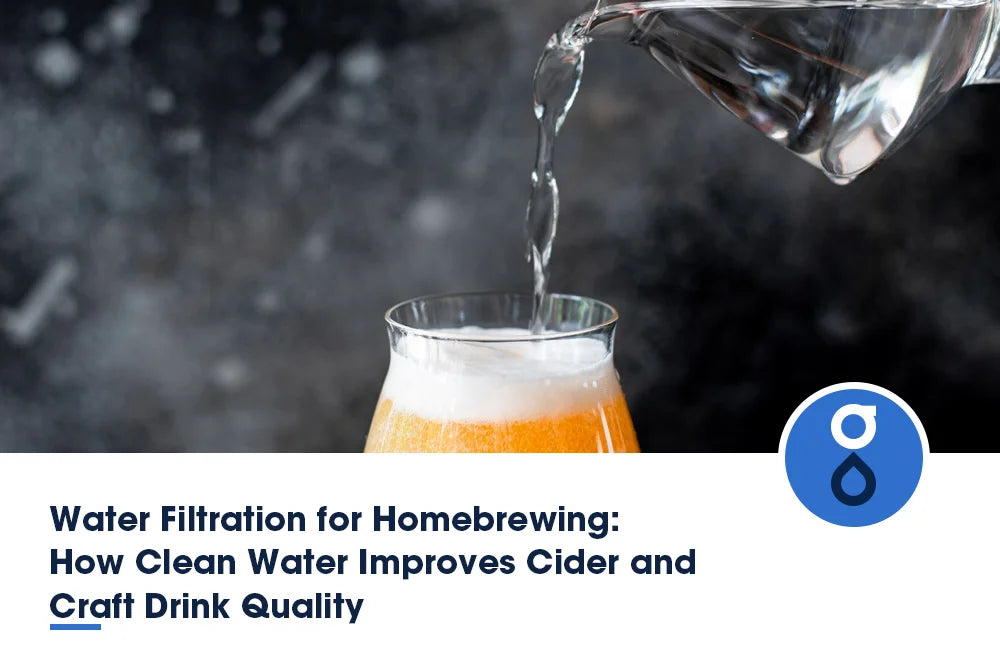Table of Contents:
Understanding water quality: the basics
Types of water filtration systems: which one is right for you?
How to choose the right water filter for your home?
Installation: do-it-yourself vs. professional help
Understanding water quality reports and certifications
Tips for first-time homeowners: getting the most out of your water filter
Conclusion
Buying your first home is an exciting milestone. Still, it also comes with many new responsibilities—especially when maintaining a safe and healthy environment for you and your family. One of the most essential yet often overlooked aspects of homeownership is ensuring that your drinking and household water is clean and safe. Water quality can directly impact your health, home appliances, and overall quality of life. Fortunately, water filtration systems offer an easy and effective solution.
In this guide, we’ll explain everything you need to know about water filtration systems—what they are, how to choose the best one for your home, and how to maintain them to ensure clean water for years to come.
Understanding water quality: the basics

Before you choose a water filtration system, it's important to understand what makes water quality good or poor. Several factors determine water quality, including contaminants, hardness, and pH levels.
Common contaminants
Some of the most common contaminants that may be found in your water include:
- Chlorine: Used to disinfect water but can affect taste and odor.
- Lead: Can leach from old plumbing pipes and is harmful, especially to children.
- Heavy metals: Such as mercury and arsenic, which can cause serious health issues.
- Bacteria and viruses: Potentially harmful pathogens that may be present in untreated or poorly treated water.
- Hard water: High levels of calcium and magnesium can cause scaling in pipes and appliances.
Understanding the quality of your water is the first step in choosing the right filtration system. Municipal water systems are often treated, but local contaminants like lead from older pipes or chlorine from disinfection processes may still exist. Your water may need more extensive testing if you're on a private well.
Types of water filtration systems: which one is right for you?
Several types of water filtration systems are available, each designed to meet different needs. Here’s a breakdown of the most common options for homeowners:
Whole-house filtration system
A whole-house filtration system treats all the water entering your home, ensuring every faucet and appliance receives clean, filtered water. This system is ideal for households with multiple bathrooms or high water consumption. While installation can be more complex and costly, it offers comprehensive protection.
Under-sink water filtration systems
These filters are installed beneath your kitchen sink and provide filtered water directly from your tap. They are generally affordable, easy to install, and ideal for drinking and cooking water. An under-sink filter is a great option if you're looking for clean water without needing a whole-house system.
Countertop water filters
Countertop filters sit on your kitchen counter and are connected to your faucet. They are portable and easy to install but may take up some counter space. These filters are a great choice if you rent or have limited space.
Pitcher water filters
Pitcher filters are the simplest and most affordable option. They don’t require installation—just fill the pitcher with tap water and let the filter do its job. While convenient, water pitcher filters are best suited for smaller households or occasional use.
Reverse osmosis(RO) system
Reverse osmosis systems use multi-stage filtration to remove contaminants like chlorine, lead, arsenic, and salts. They provide some of the cleanest water available and are ideal for those with specific health concerns or those on private wells. However, RO systems require more maintenance, and installation can be more involved.
How to choose the right water filter for your home?
When choosing a water filtration system, consider the following factors:
Assess your water quality
Start by testing your water to identify any contaminants present. Many municipalities provide annual water quality reports, but you can also order a home testing kit or hire a professional to test your water. Once you know what’s in your water, you can choose a filtration system to remove those contaminants.
Budget considerations
Water filtration systems vary in price. While pitcher filters and countertop systems are inexpensive, whole-house systems and reverse osmosis setups can cost more upfront. Consider the initial investment and long-term costs, such as replacement filters and maintenance.
Size and space
If you're short on space or don’t want to alter your home’s plumbing, countertopand pitcher filters might be your best bet. If you're installing in a larger home or need something more permanent, a whole-house or under-sink system may be better suited to your needs.
Installation: do-it-yourself vs. professional help
DIY installation
Many water filters are easy to install yourself. Pitcher filters, countertop systems, and some under-sink models often come with simple instructions requiring no plumbing experience. These systems can be set up in just a few minutes and are perfect for first-time homeowners who want an easy solution.
Professional installation
For more complex systems like whole-house filters or reverse osmosis systems, it’s often worth hiring a professional. Installation may require plumbing knowledge or specialized equipment. A professional installer can ensure the system is properly set up and your water supply is safely connected.
Understanding water quality reports and certifications

When shopping for a water filtration system, look for products certified by trusted organizations like NSF International or the Water Quality Association (WQA). These certifications ensure the filter has been tested and meets certain standards for removing contaminants.
Review your local water quality report to understand what contaminants are present in your water. This will help you choose the most effective filtration system for your needs.
Tips for first-time homeowners: getting the most out of your water filter
- Stay hydrated: Clean, filtered water can encourage better hydration, improving your health and energy levels.
- Regular maintenance: Check your filters and replace them as needed. Don’t wait for signs of poor water quality.
- Upgrade when necessary: If your family grows or your water quality changes, be open to upgrading your filtration system.
Conclusion
Investing in a water filtration system is one of the easiest and most important steps for a first-time homeowner to ensure your home is safe, healthy, and comfortable. By understanding your water quality, choosing the right system for your needs, and maintaining it properly, you'll enjoy cleaner, healthier water for years.
Start your journey toward clean water with Glacier Fresh today—you and your family deserve it.
















